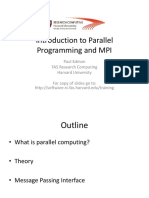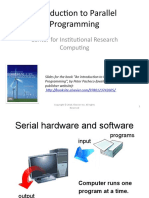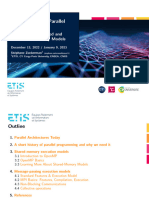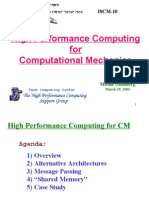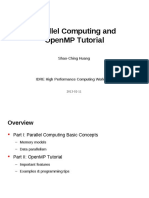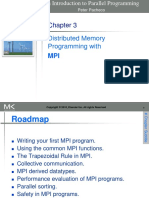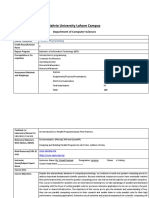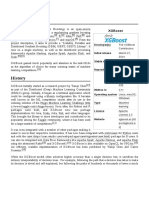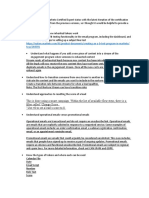0% found this document useful (0 votes)
70 views64 pages3.introduction To Parallelism
The lecture introduces the concept of parallelization, emphasizing its importance in computing efficiency and speed, particularly in processing large datasets. It covers various programming models for parallel computing, including shared and distributed memory systems, and highlights tools such as OpenMP and MPI. The session also discusses performance measures like speedup and efficiency, along with practical examples of parallel code implementation.
Uploaded by
1none2none3Copyright
© © All Rights Reserved
We take content rights seriously. If you suspect this is your content, claim it here.
Available Formats
Download as PDF, TXT or read online on Scribd
0% found this document useful (0 votes)
70 views64 pages3.introduction To Parallelism
The lecture introduces the concept of parallelization, emphasizing its importance in computing efficiency and speed, particularly in processing large datasets. It covers various programming models for parallel computing, including shared and distributed memory systems, and highlights tools such as OpenMP and MPI. The session also discusses performance measures like speedup and efficiency, along with practical examples of parallel code implementation.
Uploaded by
1none2none3Copyright
© © All Rights Reserved
We take content rights seriously. If you suspect this is your content, claim it here.
Available Formats
Download as PDF, TXT or read online on Scribd
/ 64





